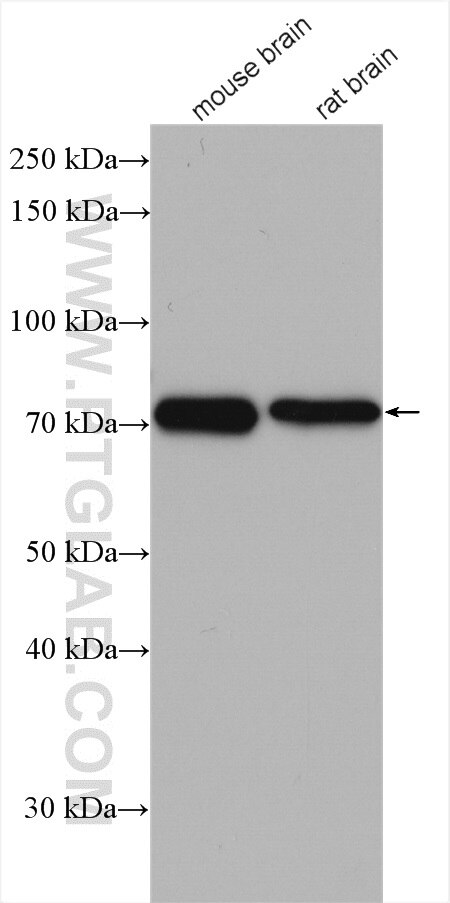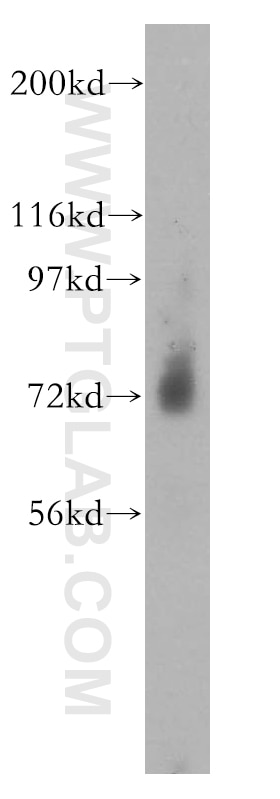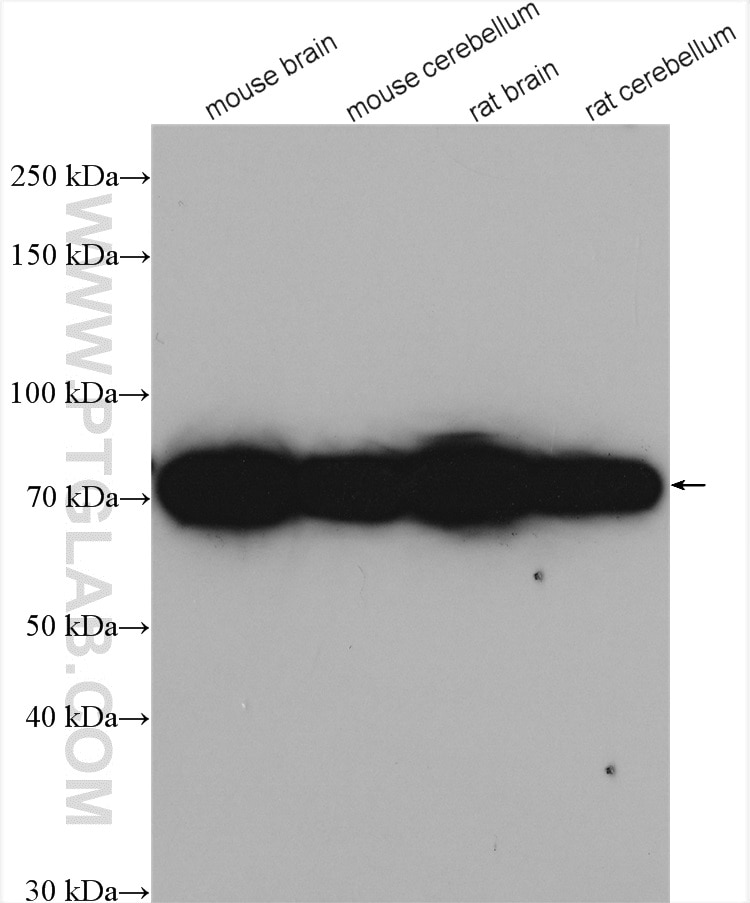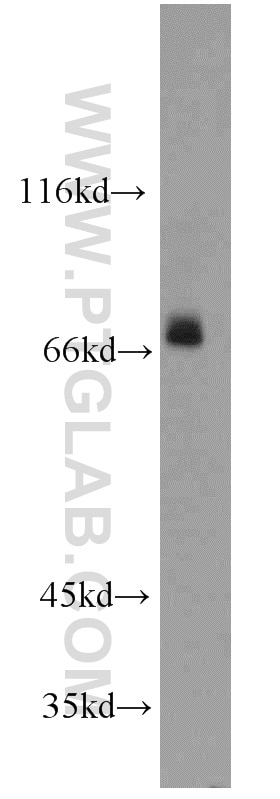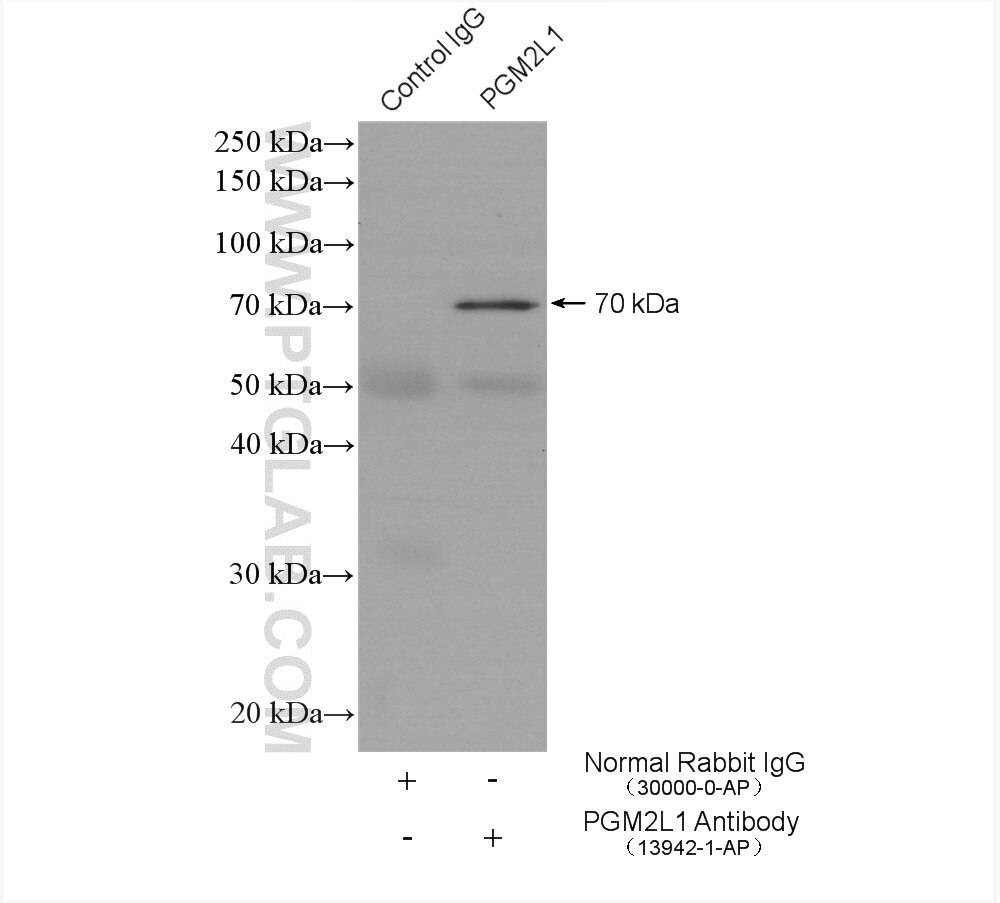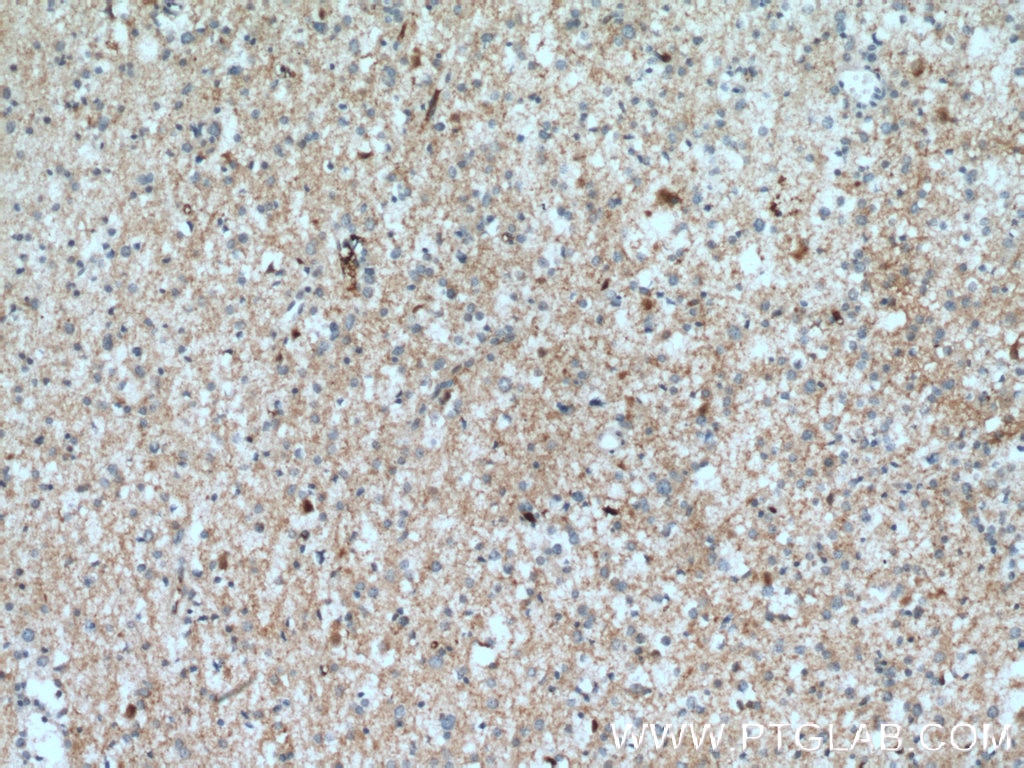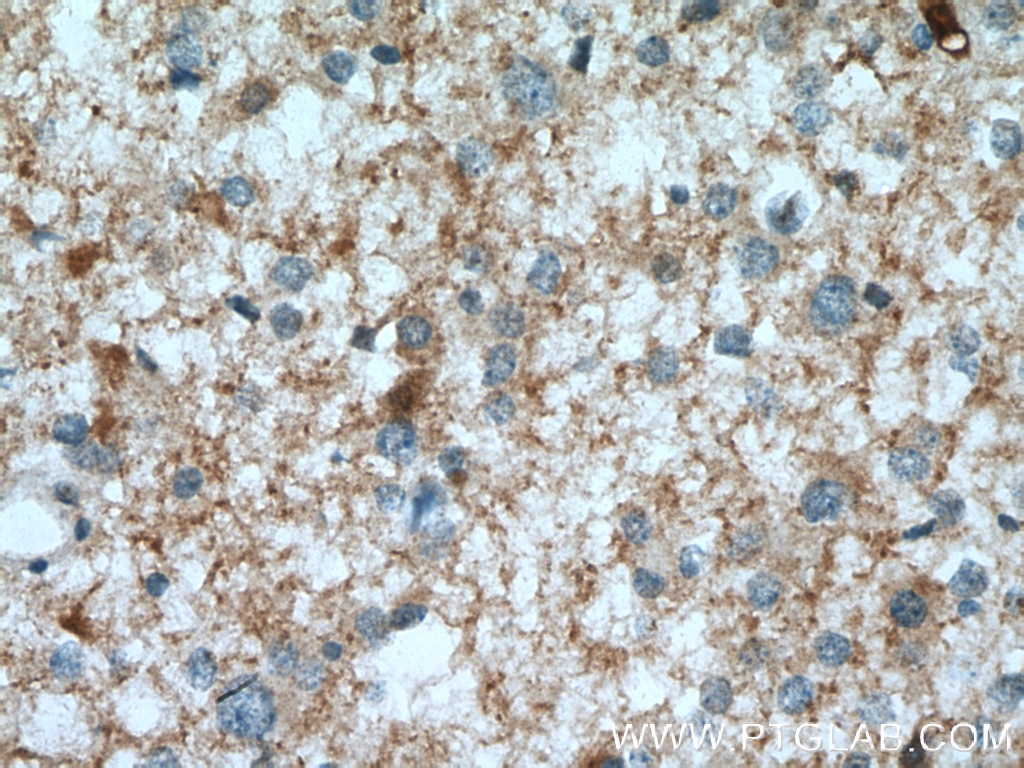PGM2L1 Polyclonal antibody
PGM2L1 Polyclonal Antibody for IHC, IP, WB,ELISA
Host / Isotype
Rabbit / IgG
Reactivity
human, mouse, rat
Applications
WB, IP, IHC,ELISA
Conjugate
Unconjugated
Cat no : 13942-1-AP
Synonyms
Validation Data Gallery
Tested Applications
| Positive WB detected in | mouse brain tissue, mouse skeletal muscle tissue, rat brain tissue, mouse cerebellum tissue, rat cerebellum tissue |
| Positive IP detected in | mouse brain tissue |
| Positive IHC detected in | human gliomas tissue Note: suggested antigen retrieval with TE buffer pH 9.0; (*) Alternatively, antigen retrieval may be performed with citrate buffer pH 6.0 |
Recommended dilution
| Application | Dilution |
|---|---|
| Western Blot (WB) | WB : 1:1000-1:6000 |
| Immunoprecipitation (IP) | IP : 0.5-4.0 ug for 1.0-3.0 mg of total protein lysate |
| Immunohistochemistry (IHC) | IHC : 1:50-1:500 |
| It is recommended that this reagent should be titrated in each testing system to obtain optimal results. | |
| Sample-dependent, Check data in validation data gallery. | |
Product Information
13942-1-AP targets PGM2L1 in WB, IP, IHC,ELISA applications and shows reactivity with human, mouse, rat samples.
| Tested Reactivity | human, mouse, rat |
| Host / Isotype | Rabbit / IgG |
| Class | Polyclonal |
| Type | Antibody |
| Immunogen | PGM2L1 fusion protein Ag5019 |
| Full Name | phosphoglucomutase 2-like 1 |
| Calculated Molecular Weight | 70 kDa |
| Observed Molecular Weight | 72 kDa |
| GenBank Accession Number | BC059360 |
| Gene Symbol | PGM2L1 |
| Gene ID (NCBI) | 283209 |
| RRID | AB_2299394 |
| Conjugate | Unconjugated |
| Form | Liquid |
| Purification Method | Antigen affinity purification |
| Storage Buffer | PBS with 0.02% sodium azide and 50% glycerol pH 7.3. |
| Storage Conditions | Store at -20°C. Stable for one year after shipment. Aliquoting is unnecessary for -20oC storage. 20ul sizes contain 0.1% BSA. |
Protocols
| Product Specific Protocols | |
|---|---|
| WB protocol for PGM2L1 antibody 13942-1-AP | Download protocol |
| IHC protocol for PGM2L1 antibody 13942-1-AP | Download protocol |
| IP protocol for PGM2L1 antibody 13942-1-AP | Download protocol |
| Standard Protocols | |
|---|---|
| Click here to view our Standard Protocols |
